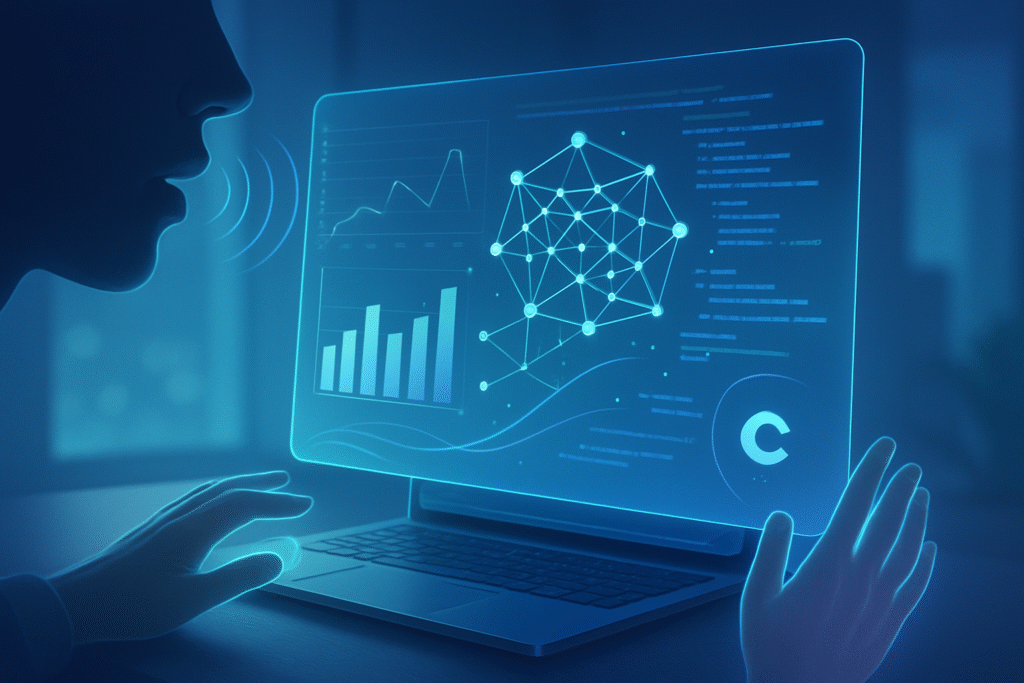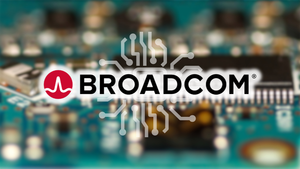
Redmond, WA – October 16, 2025 – Microsoft Corporation (NASDAQ: MSFT) has officially ushered in a new era of personal computing, strategically timing its most significant Windows 11 update yet with the cessation of free support for Windows 10. This pivotal moment marks Microsoft's aggressive push to embed artificial intelligence at the very core of the PC experience, aiming to transform virtually every Windows 11 machine into a powerful 'AI PC' capable of hands-free interaction with its intelligent assistant, Copilot. The move is designed not only to drive a massive migration away from the now-unsupported Windows 10 but also to fundamentally redefine how users interact with their digital world.
The immediate significance of this rollout, coinciding directly with the October 14, 2025, end-of-life for Windows 10's free security updates, cannot be overstated. Millions of users are now confronted with a critical decision: upgrade to Windows 11 and embrace the future of AI-powered computing, or face increasing security vulnerabilities on an unsupported operating system. Microsoft is clearly leveraging this deadline to accelerate adoption of Windows 11, positioning its advanced AI features—particularly the intuitive, hands-free Copilot—as the compelling reason to make the leap, rather than just a security imperative.
The Dawn of Hands-Free Computing: Deeper AI Integration in Windows 11
Microsoft's latest Windows 11 update, encompassing versions 24H2 and 25H2, represents a profound shift in its operating system's capabilities, deeply integrating AI to foster more natural and proactive user interactions. At the heart of this transformation is an enhanced Copilot, now boasting capabilities that extend far beyond a simple chatbot.
The most prominent new feature is the introduction of "Hey Copilot" voice activation, establishing voice as a fundamental "third input mechanism" alongside the traditional keyboard and mouse. Users can now summon Copilot with a simple spoken command, enabling hands-free operation for a multitude of tasks, from launching applications to answering complex queries. This is complemented by Copilot Vision, an innovative feature allowing the AI to "see" and analyze content displayed on the screen. Whether it's providing contextual help within an application, summarizing a document, or offering guidance during a gaming session, Copilot can now understand and interact with visual information in real-time. Furthermore, Microsoft is rolling out Copilot Actions, an experimental yet groundbreaking agentic AI capability. This allows Copilot to perform multi-step tasks across applications autonomously, such as replying to emails, sorting files, or even booking reservations, acting as a true digital assistant on the user's behalf.
These advancements represent a significant departure from previous AI integrations, which were often siloed or required explicit user initiation. By embedding Copilot directly into a redesigned taskbar and enabling system-wide voice and vision capabilities, Microsoft is making AI an ambient, ever-present layer of the Windows experience. Unlike the initial focus on specialized "Copilot+ PCs" with dedicated Neural Processing Units (NPUs), Microsoft has deliberately made many of these core AI features available to all Windows 11 PCs, democratizing access to advanced AI. While Copilot+ PCs (requiring 40+ TOPS NPU, 16GB RAM, and 256GB SSD/UFS) will still offer exclusive, higher-performance AI functions, this broad availability ensures a wider user base can immediately benefit. Initial reactions from the AI research community highlight the strategic importance of this move, recognizing Microsoft's intent to make AI an indispensable part of everyday computing, pushing the boundaries of human-computer interaction beyond traditional input methods.
Reshaping the AI Landscape: Competitive Implications and Market Shifts
Microsoft's aggressive "AI PC" strategy, spearheaded by the deep integration of Copilot into Windows 11, is poised to dramatically reshape the competitive landscape for AI companies, tech giants, and startups alike. This move solidifies Microsoft's (NASDAQ: MSFT) position at the forefront of the consumer-facing AI revolution, creating significant beneficiaries and presenting formidable challenges to rivals.
Foremost among those to benefit are Microsoft itself and its hardware partners. Original Equipment Manufacturers (OEMs) like Dell Technologies (NYSE: DELL), HP Inc. (NYSE: HPQ), Lenovo Group (HKEX: 0992), and Acer (TWSE: 2353) stand to see increased demand for new Windows 11 PCs, especially the premium Copilot+ PCs, as users upgrade from Windows 10. The requirement for specific hardware specifications for Copilot+ PCs also boosts chipmakers like Qualcomm (NASDAQ: QCOM) with its Snapdragon X series and Intel Corporation (NASDAQ: INTC) with its Core Ultra Series 2 processors, which are optimized for AI workloads. These companies are now critical enablers of Microsoft's vision, deeply integrated into the AI PC ecosystem.
The competitive implications for major AI labs and tech companies are profound. Google (NASDAQ: GOOGL) and Apple (NASDAQ: AAPL), while having their own robust AI offerings (e.g., Google Assistant, Siri), face renewed pressure to integrate their AI more deeply and pervasively into their operating systems and hardware. Microsoft's "hands-free" and "agentic AI" approach sets a new benchmark for ambient intelligence on personal devices. Startups specializing in productivity tools, automation, and user interface innovations will find both opportunities and challenges. While the Windows platform offers a massive potential user base for AI-powered applications, the omnipresence of Copilot could also make it harder for third-party AI assistants or automation tools to gain traction if Copilot's capabilities become too comprehensive. This could lead to a consolidation of AI functionalities around the core operating system, potentially disrupting existing niche products or services that Copilot can now replicate. Microsoft's strategic advantage lies in its control over the operating system, allowing it to dictate the fundamental AI experience and set the standards for what constitutes an "AI PC."
The Broader AI Horizon: A New Paradigm for Personal Computing
Microsoft's latest foray into pervasive AI integration through Windows 11 and Copilot represents a significant milestone in the broader artificial intelligence landscape, signaling a fundamental shift in how we perceive and interact with personal computers. This development aligns with the overarching trend of AI moving from specialized applications to becoming an ambient, indispensable layer of our digital lives, pushing the boundaries of human-computer interaction.
This initiative impacts not just the PC market but also sets a precedent for AI integration across various device categories. The emphasis on voice as a primary input and agentic AI capabilities signifies a move towards truly conversational and autonomously assisted computing. It moves beyond mere task automation to a system that can understand context, anticipate needs, and act on behalf of the user. This vision for the "AI PC" fits squarely into the burgeoning field of "everywhere AI," where intelligent systems are seamlessly woven into daily routines, making technology more intuitive and less obtrusive. Potential concerns, however, echo past debates around privacy and security, especially with features like Copilot Vision and Copilot Actions. The ability of AI to "see" screen content and execute tasks autonomously raises questions about data handling, user consent, and the potential for misuse or unintended actions, which Microsoft has begun to address following earlier feedback on features like "Recall."
Comparisons to previous AI milestones are warranted. Just as the graphical user interface revolutionized computing by making it accessible to the masses, and the internet transformed information access, Microsoft's AI PC strategy aims to usher in a new era where AI is the primary interface. This could be as transformative as the introduction of personal assistants on smartphones, but with the added power and versatility of a full-fledged desktop environment. The democratizing effect of making advanced AI available to all Windows 11 users, not just those with high-end hardware, is crucial. It ensures that the benefits of this technological leap are widespread, potentially accelerating AI literacy and adoption across diverse user groups. This broad accessibility could fuel further innovation, as developers begin to leverage these new AI capabilities in their applications, leading to a richer and more intelligent software ecosystem.
The Road Ahead: Anticipating Future AI PC Innovations and Challenges
Looking ahead, Microsoft's AI PC strategy with Windows 11 and Copilot is just the beginning of a multi-year roadmap, promising continuous innovation and deeper integration of artificial intelligence into the fabric of personal computing. The near-term will likely see refinements to existing features, while the long-term vision points to an even more autonomous and predictive computing experience.
In the coming months, we can expect to see enhanced precision and expanded capabilities for "Hey Copilot" voice activation, alongside more sophisticated contextual understanding from Copilot Vision. The "Copilot Actions" feature, currently experimental, is anticipated to mature, gaining the ability to handle an even wider array of complex, cross-application tasks with greater reliability and user control. Microsoft will undoubtedly focus on expanding the ecosystem of applications that can natively integrate with Copilot, allowing the AI to seamlessly operate across a broader range of software. Furthermore, with the continuous advancement of NPU technology, future Copilot+ PCs will likely unlock even more exclusive, on-device AI capabilities, offering unparalleled performance for demanding AI workloads and potentially enabling entirely new types of local AI applications that prioritize privacy and speed.
Potential applications and use cases on the horizon are vast. Imagine AI-powered creative suites that generate content based on natural language prompts, hyper-personalized learning environments that adapt to individual user needs, or advanced accessibility tools that truly break down digital barriers. Challenges, however, remain. Ensuring robust privacy and security measures for agentic AI and screen-reading capabilities will be paramount, requiring transparent data handling policies and user-friendly controls. The ethical implications of increasingly autonomous AI also need continuous scrutiny. Experts predict that the next phase will involve AI becoming a proactive partner rather than just a reactive assistant, anticipating user needs and offering solutions before being explicitly asked. The evolution of large language models and multimodal AI will continue to drive these developments, making the PC an increasingly intelligent and indispensable companion.
A New Chapter in Computing: The AI PC's Enduring Legacy
Microsoft's strategic move to transform every Windows 11 machine into an 'AI PC' with hands-free Copilot, timed perfectly with the end of Windows 10 support, marks a truly pivotal moment in the history of personal computing and artificial intelligence. The key takeaways from this development are clear: AI is no longer an optional add-on but a fundamental component of the operating system; voice has been elevated to a primary input method; and the era of agentic, autonomously assisted computing is officially underway.
This development's significance in AI history cannot be overstated. It represents a major step towards democratizing advanced AI, making powerful intelligent agents accessible to hundreds of millions of users worldwide. By embedding AI so deeply into the most widely used operating system, Microsoft is accelerating the mainstream adoption of AI and setting a new standard for user interaction. This is not merely an incremental update; it is a redefinition of the personal computer itself, positioning Windows as the central platform for the ongoing AI revolution. The long-term impact will likely see a profound shift in productivity, creativity, and accessibility, as AI becomes an invisible yet omnipresent partner in our daily digital lives.
As we move forward, the coming weeks and months will be crucial for observing user adoption rates, the effectiveness of the Windows 10 to Windows 11 migration, and the real-world performance of Copilot's new features. Industry watchers will also be keen to see how competitors respond to Microsoft's aggressive strategy and how the ethical and privacy considerations surrounding pervasive AI continue to evolve. This is a bold gamble by Microsoft, but one that could very well cement its leadership in the age of artificial intelligence.
This content is intended for informational purposes only and represents analysis of current AI developments.
TokenRing AI delivers enterprise-grade solutions for multi-agent AI workflow orchestration, AI-powered development tools, and seamless remote collaboration platforms.
For more information, visit https://www.tokenring.ai/.




